

Advocates say Trump’s immigration crackdown will put foreign-born workers like Eva Rodriguez at greater risk — and that knowing their rights is the best defense.
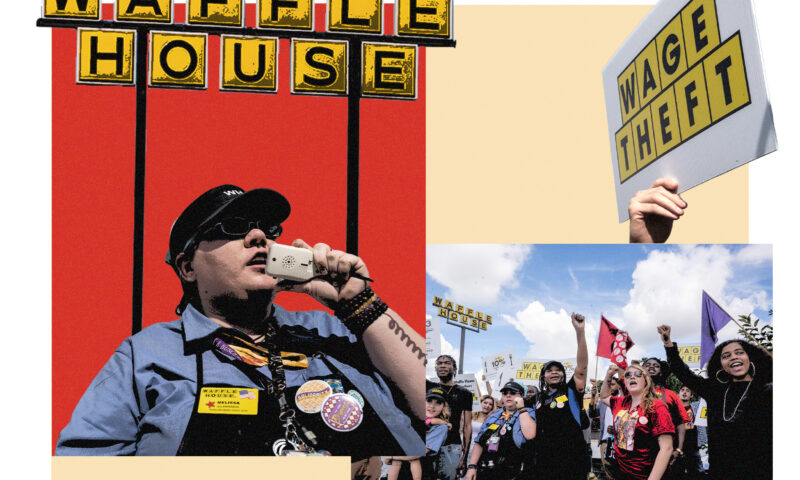

Servers say the chain forces them to do janitorial work, dishwashing for lower tipped wages and robs them of up to $46.8 million.
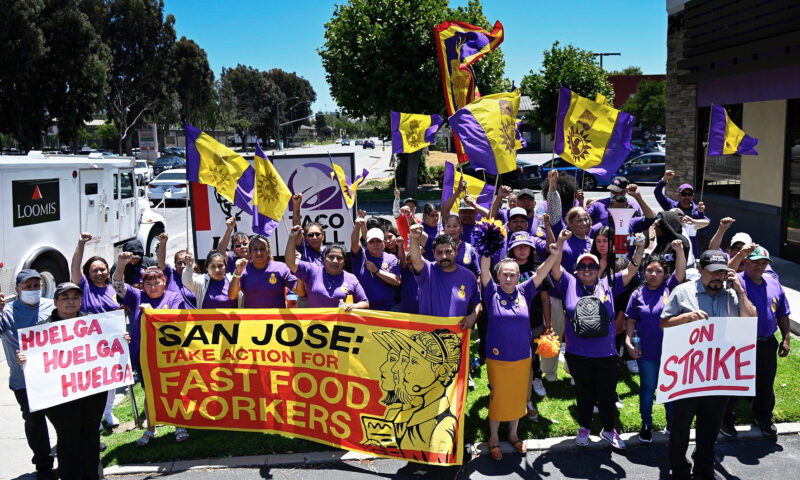
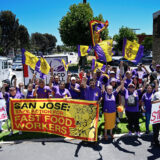
Workers push for mandatory training in L.A. and San Jose, where they meet industry resistance.


The use of separate corporate entities is under scrutiny, shedding light on labor abuses in the fast-food industry.
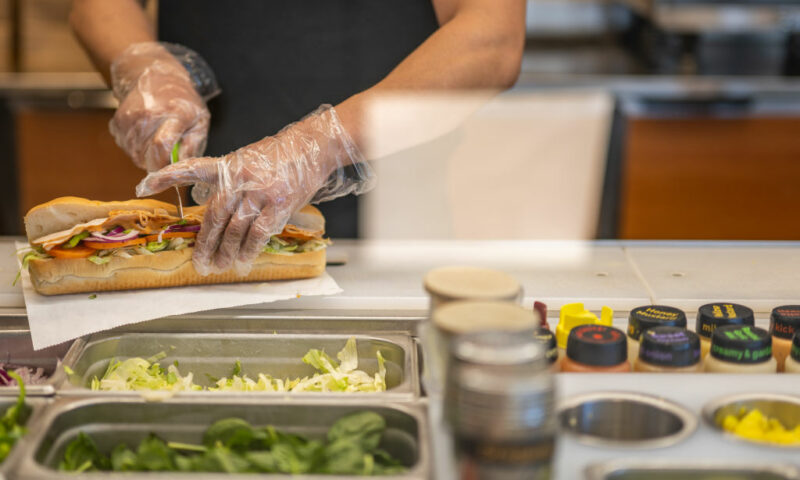

Overburdened labor enforcement agency says violations are difficult to prove.


Community coalition targets major developers whose subcontractors stiff workers and allow dangerous conditions, signaling possible national strategy.


Two California cases probe who is pocketing those extra fees tacked onto your restaurant tab.
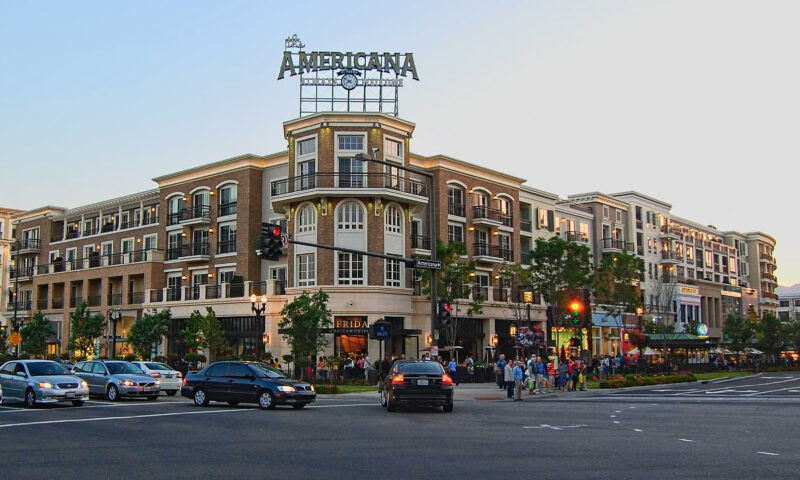

Fullerton Pacific Interiors was cited in 2018 for wage theft.


How employers get away with denying workers income they used to earn.


More than 60 million U.S. workers have been shut out of the court system by companies that mandate arbitration in the event of a dispute.


ICE says immigrant detainees are only obligated to make their beds and avoid clutter. But a for-profit prison company is accused of forcing them to do much more – and for no wages.


Many migrant workers in California on H-2A temporary agricultural visas are forced to contend with unsafe working conditions, wage theft and other labor law violations.


Lawbreakers who happen to be bosses are, in cases of misclassifying employees as “contractors,” treated with an enviable amount of understanding by the IRS.


A new Congressional bill would reduce a broad range of agriculture workers to the status of “guest workers.” California’s dairy owners are ecstatic. Co-published by International Business Times.


During a six-week investigation of President Trump’s nominee for Secretary of Labor, Andrew Puzder, Capital & Main has found a widespread pattern of alleged employee abuse at CKE Restaurants, of which Puzder has been CEO since 2000.
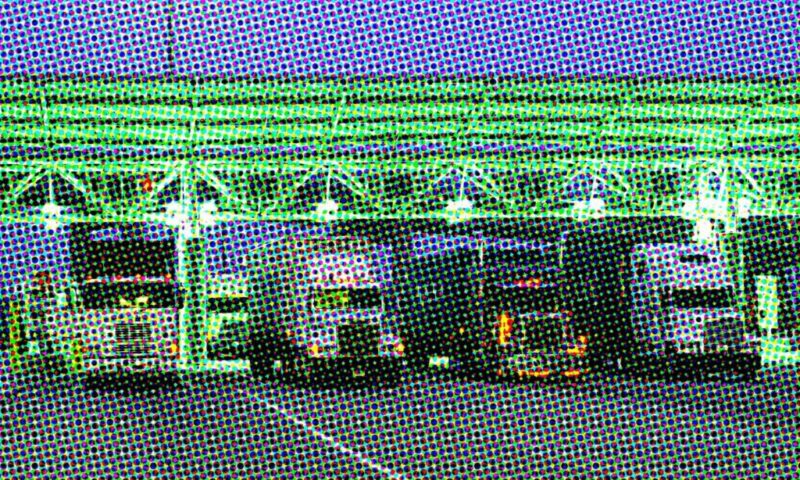

“I want this message to be loud and clear: Until Pacific 9 reclassifies its workers, until they return our wages, until they obey the law, we will not stop the fight.”
– Amador Rojas, port truck driver
As Capital & Main reported yesterday, drivers with one of the larger trucking companies serving the ports of Los Angeles and Long Beach went on strike just before dawn Monday. They struck XPO Logistics, a major international freight transportation company, while at the same time other drivers picketed Pacific 9 Transportation as they entered the 15th week of a strike against that company.
These drivers are on the front lines of a critical fight impacting the future of work in the United States. “Misclassification,” a condition in which companies wrongly treat their workers as “independent contractors” rather than as employees, is a growing problem that is receiving increasing attention.
» Read more about: Striking Port Truck Drivers Dig in Against Wage Theft »


Truck drivers at the ports of Los Angeles and Long Beach will begin a strike at 6 a.m. today against local subsidiaries of XPO Logistics, a Connecticut-headquartered freight transportation company. The drivers are taking the action because they say that XPO misclassifies them as independent contractors rather than as employees – a practice that allows companies to claw back pay, duck labor standards and pass vehicle maintenance costs onto drivers.
Misclassification policies amount to wage theft, according to labor advocates and increasingly one-sided rulings by courts and regulatory agencies. Studies have found that between 10 and 20 percent of employers misclassify at least one employee in nearly every American industry, from construction to home care to janitorial services to transportation.
At the same time that XPO’s drivers will be walking picket lines, drivers protesting similar treatment from Pacific 9 Transportation, another freight-hauling company servicing the ports, will enter the 15th week of a strike against that business.
» Read more about: Bulletin: Port Truck Drivers Strike Over Wage Theft »
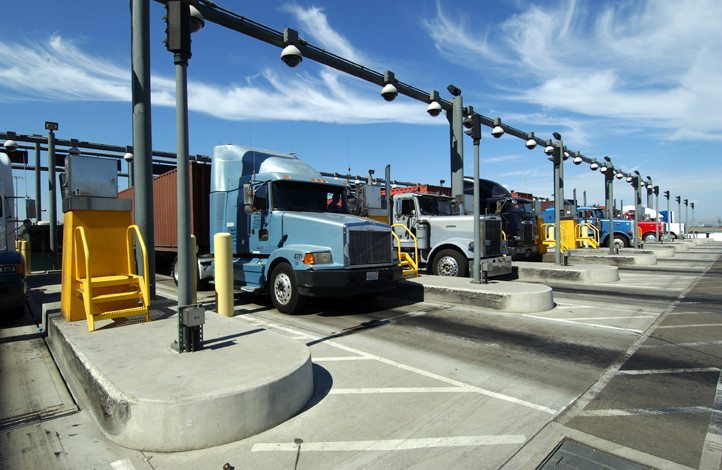
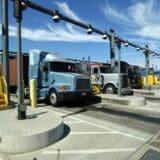
Why are the port truck drivers on strike? It is well known that the U.S. economy relies in part on jobs generated or networked around the imports of manufactured commodities. The Ports of Los Angeles and Long Beach form a nexus of the global supply chain, where multinational corporations focus on every opportunity to keep labor costs low and profits high. One of the unrecognized links in the global supply chain is the port truck driver.
Port truck drivers play a pivotal role in the distribution of goods that makes them a critical piece of the profit puzzle. Professional drivers work long hours hauling nearly $4 billion worth of cargo every day from American seaports for companies like Walmart, Home Depot, Target, Costco and Polo/Ralph Lauren. Yet they often receive paychecks below the minimum wage, and on occasion, end up owing money to the firms that hire them.
Due to the privatization policies of the Nixon-Reagan era,
» Read more about: Why They Strike: Port Truck Drivers on the Move »
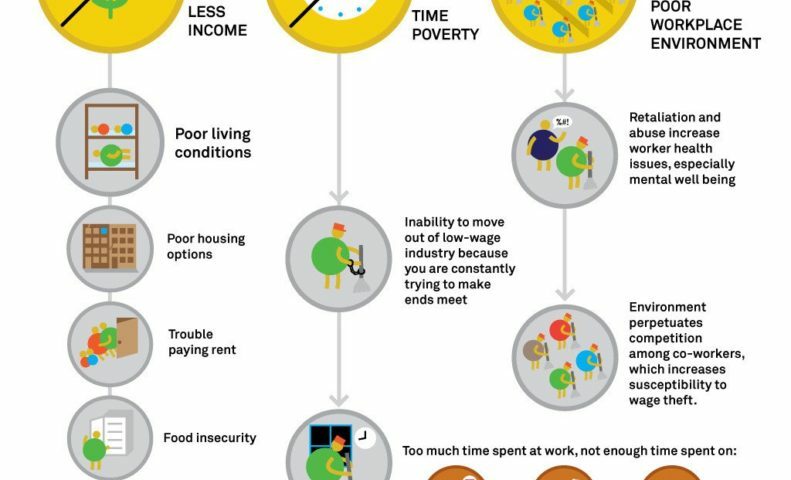
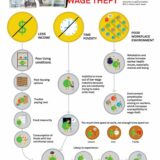
Los Angeles may be a capital for entertainment, tourism and culture, but for many local workers L.A. is synonymous with working off the clock, unpaid overtime and other labor-law violations. L.A. workers lose an estimated $26.2 million every week to bosses who fail to pay employees what they earn. However, we can learn something from other parts of the state that have taken serious measures to curb wage theft. From raising penalties on employers who steal, to shielding workers from retaliation, there are numerous strategies that can be used to put more earnings into workers’ pockets.
When it comes to enforcing labor laws, “the main obstacle is lack of resources,” Ruth Milkman, a sociology professor at the City University of New York and co-author of a 2010 UCLA wage-theft study, tells Capital & Main. “The scale of the problem is so much bigger than the capacity of these agencies to deal with it,” she continues.
» Read more about: Wage Theft Confidential: Finding Solutions »


In March, seven class action lawsuits filed in California, Michigan and New York suggested that for the country’s 30 million-strong low-wage workforce, getting one’s paycheck ripped off by some of the largest and wealthiest employers in America is too often business as usual.
Contending that the McDonald’s restaurant chain had been “systematically stealing” from its workers, the suits detailed company-wide practices of managers regularly ordering employees to work off the clock, shaving hours from their time cards and not paying overtime. Three of the California suits also claimed that McDonald’s and its franchise owners illegally altered pay records and denied employees meal periods and rest breaks. Other plaintiffs alleged McDonald’s used a sophisticated computer program that monitored real-time sales volume: When sales dropped below a certain level during any given hour, attorneys said, some managers would routinely order workers from the incoming shift to not punch in for an hour or two until there were more customers.
» Read more about: Wage Theft Confidential: The Worst Scofflaw Industries »